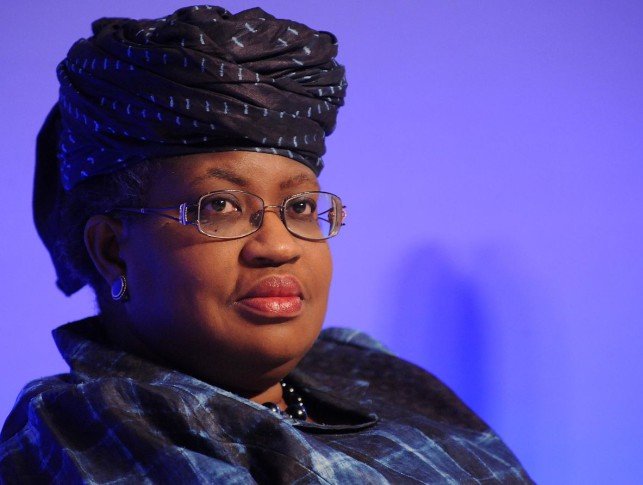The federal government has tabled a list of requests it wants Ngozi Okojo-Iweala to help address as Director General of World Trade Organization (WTO).
First, Nigeria wants Ngozi Okojo-Iweala to support the nation’s push for the country’s gas to be classified as transition energy.
Minister of finance Mrs. Zainab Ahmed made the plea in Abuja on Monday when the Director General of the WTO Dr. Ngozi Okojo-Iweala paid her an official visit.
According to Zainab Ahmed, Nigeria is advocating “for transition energy because it is true now that the issue of climate changes is upon us.”
Ahmed argued that “our gas emission in Nigeria is very minimal compared to global emissions. We have these assets and we have not tapped it to aid our development.”
She pleaded that “we want you to support us and we have it in our agenda in COP 26 to campaign for gas to be classified as transition energy even if it’s for a limited period of 20 years.”
Nigeria, the finance minister said “also wants the WTO to support us in looking at how Nigeria can leverage on bio-economic resources.”
According to Zainab Ahmed, “it is not new we have been too dependent on fossil fuel and crude contributes significantly to the extent that whichever way the market swings to, that’s the situation we will find ourselves and it is unhealthy.”
Nigeria is also asking for help from the WTO “to help facilitate trade under the Africa Continental Free Trade Agreement (AfCFTA) and enhance the ease of doing business, strengthen manufacturing, and also get women involved and support Nigeria in driving economic inclusive growth by paying special attention to the contributions of women.”
Responding, the WTO Director General, Dr Ngozi Okojo-Iweala said her “visit is to see how WTO can support Nigeria and improve her ability to trade.”
To support Nigeria’s trade she noted has become imperative giving that “Nigeria’s share of world trade is 0.33 percent and then in logistics of trade we are 103 out of 167 and generally 19 percent of African trade.”
While promising to help Nigeria, Okonjo-Iweala said she sees Nigeria’s poor figures regarding trade as “a fantastic opportunity to take advantage of the AfCFTA and be able to expand and one of the objectives is to see how the WTO can help and add value to our primary products especially within Africa.”
According to her, “Nigeria is one of the biggest producers of Sesame seeds and shea butter in the world but we have been barred from the market of Europe and the US for quality issues so we couldn’t export”.
However, the WTO she said has “come up with the International Trade Center and established cooperatives for goods to penetrate more markets and it has ordered 200metric tonnes of shea butter and later 500metric tonnes both of which have had positive impact”.
Okonjo-Iweala stated that there is a “joint statement initiative at the WTO to see what rules that can underpin trade for MSMEs and women in trade because we believe reaching them will make a difference in regional and global value chain since most of the population is in informal sectors.”
With regards to Nigeria’s advocacy for transition energy, the WTO Director General noted that the world is fast moving to renewable energy.
According to her, “in the area of transition to renewable energy, the world is moving in the direction of renewables, we have to advocate and migrate to other types of activities. Nigeria must think fast on how to join the movement and I support the minister in transiting from fossil foil but we must advocate and be willing to migrate”.
Okonjo-Iweala noted that Nigeria has “a diversified economy that can actually benefit us if we invest in it, not just in goods, or agriculture, but also services”.
Nigeria she said has “young people doing great in fintech and technology and the WTO is developing rules to underpin e-commerce in a fair and balanced way and also train people to access e-commerce”.
“E-commerce is crucial especially with the pandemic and the WTO negotiates rules to make everyone access e-commerce,” she said.
Going forward, the WTO she said hopes “to work with international banks to improve world trade. We will work with World bank, IMF, AFDB and Afreximbank”.
“I have stated that Nigeria is 103 out of 167 in logistics of trade, so if we are thinking of how we can improve trade, we must also think of how we can improve logistics from transport to other logistics. However, e-commerce must come with regulations and Nigeria is the leading light”.
The WTO she said can assist Nigeria “specifically and we have joined with International Finance Corporation (IFC) and Afexim bank to facilitate trade. We are also partnering IFC for women in finance programme with a discount.”
Before ending her speech, Ngozi Okojo-Iweala revealed how the Nigerian government did everything to support her emergence as Director General of the WTO.
She said the federal government through the minister of finance cleared Nigeria’s arrears at the WTO for 2019 and 2020 even before the year ran out as well as paid advance for 2021.
This gesture she said cleared the way for her because it showed Nigeria as a true continental leader that does not joke with its obligations.

